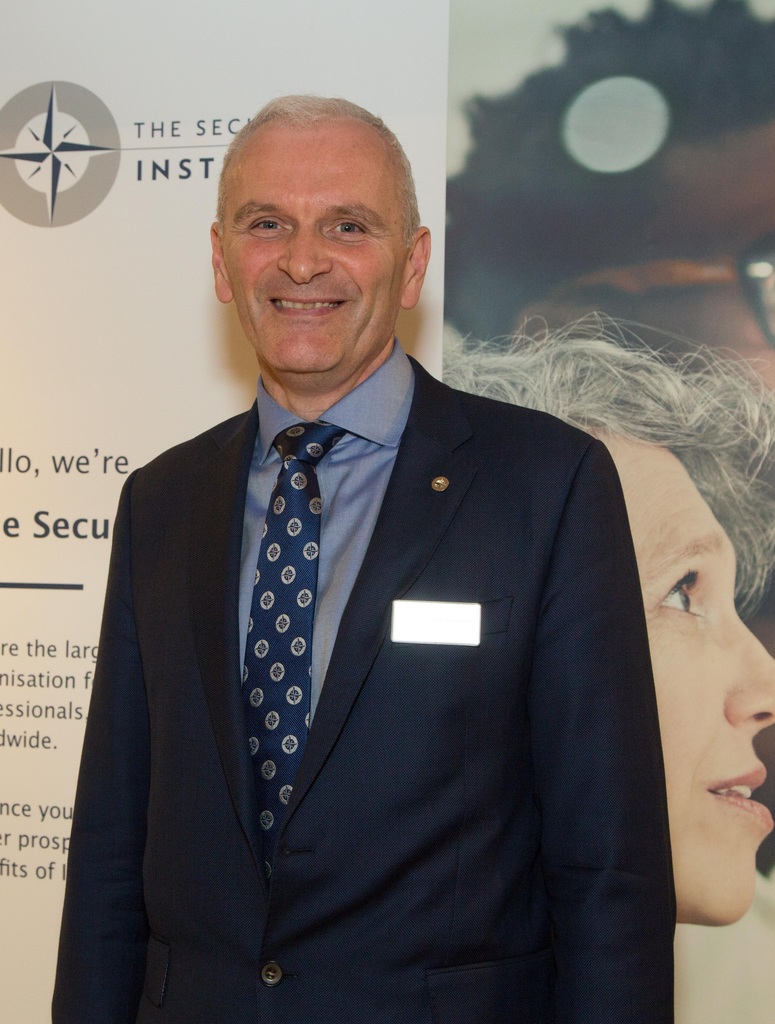
Brian Sims
Editor

Brian Sims
Editor
Paul Barnard examines the issue of diversity within the security sector's workforce
What does the future of the UK security sector look like? Not only in terms of the challenges we face, such as the evolving nature of crime on our streets, as well as the risk of both international and national terrorism and of course the fast-moving online threats, but in terms of the sector's workforce.
More importantly, is the security sector's workforce diverse enough to tackle these challenges? Not only how it looks physically in terms of its personnel, but moreover in terms of the diversity of our thinking? I pose the question: have we challenged how we think enough?
When at an event a few years ago, I was struck by the obvious lack of diversity amongst a 350 strong collective of security professionals in the conference room. This is not a criticism because I am also from that same fold, but it is indicative of how we are failing to promote the security sector as a career of choice across our vast workstreams to attract young talent from all backgrounds and capabilities. It was clear to me then that we needed to think about the steps that we as a sector can take to ensure our talent pipeline is fit to meet the security challenges we see unfolding before us.
Initiatives
To address this #NextGen was launched by the Security Institute (SyI) in 2018, aiming to change perceptions of the security industry and showcase the wide range of career paths available within the sector to young people – we have taken nearly 400 to security shows across the UK.
In addition, SyI has also launched a new partnership with the EY Foundation, expanding the reach of their #NextGen Initiative. The EY Foundation is an experienced social mobility charity and will help improve existing efforts to break down barriers of employment within the security sector and introduce more young people to the wide range of security careers available.
The SyI/EY Foundation partnership will reach out to untapped young potential and help pipeline diverse talent into the industry, which is essential if we as a sector are to effectively address the security threats of today.
Through this new partnership a ‘Secure Futures’ programme and a ‘National Security Challenge’ will both be launched. ‘Secure Futures’ is a 9-month employability programme, which will be completed by thirty 16-18-year-olds from low-income backgrounds that are considering a career within the security industry. The programme is specifically designed for the sector and will include relevant skills training, professional mentoring and paid work experience. Experienced security professionals will help co-develop and co-deliver each stage of the programme, ensuring that participants gain the most out of the opportunity.
The ‘National Security Challenge’ will see teams of secondary school students working in small groups, presented with a real-life security-related challenge, to demonstrate their thinking and solve a problem. The one-day challenge will be set by experienced security professionals and will take place in schools across the country, particularly targeting young people from low-income backgrounds.
Endorsement
Admiral Lord West of Spithead, the former UK Security Minister, has endorsed these new programmes.
He said: "The Secure Futures programme engages with disadvantaged young people, to provide employability skills, structured insights into the variety of careers across the security sector and nine months of mentoring. The partnership has also developed a ‘National Security Challenge’, to set 300 young people a security dilemma. In teams they pitch their solution, to a panel of security experts, who elect a winner. I am proud to endorse these exciting and innovative programmes, which I believe will benefit the UK security sector."
These two new programmes are designed to inspire young people to embark on careers within security. Young people can offer a fresh perspective, different thinking, real-life experiences and provide unique insights into some of the greatest security challenges that we currently face, helping us remain well-equipped to prevent and tackle risks.
Organisations can support the Secure Futures programme by:
You can support the National Security Challenge by sponsoring part or all of the £40,000 to set up and establish the challenge.
If you would like to get involved, all you need to do is take 5 mins to fill out this short survey: https://eyfsecurityprogram.typeform.com/to/FoS6pc
Paul Barnard MSyI is Security Institute’s #NextGen Director


1 The Courtyard
Caldecote
CV10 OAS
UNITED KINGDOM